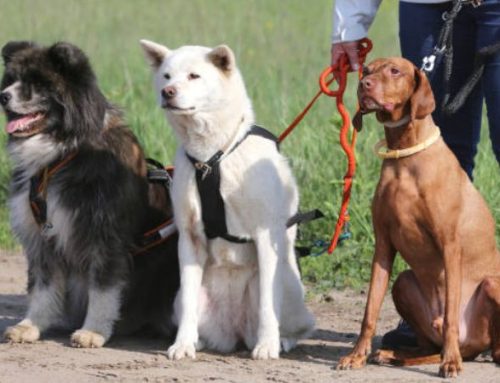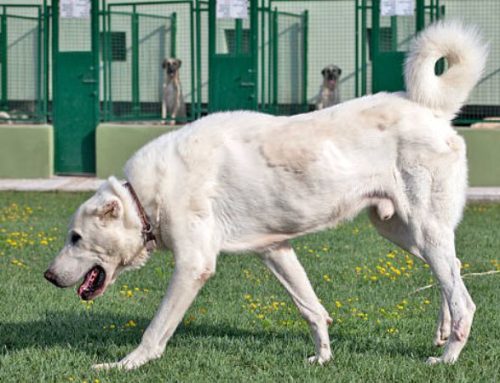It can be confusing—and a little frustrating when your dog starts gaining weight despite eating the same amount, or even less than usual. You’ve stuck to their feeding schedule, avoided extra treats, and yet the numbers on the scale keep climbing.
What’s going on? At Nexus-Pets, we’re here to help you make sense of this unexpected change. From hidden health issues to subtle lifestyle shifts, let’s explore the possible reasons behind your dog’s unexplained weight gain and what you can do about it.

Possible Reasons for Weight Gain Without Increased Appetite
1. Metabolic and Health Conditions
Sometimes, your dog’s weight gain isn’t about what they’re eating but rather, what’s happening inside their body. One common culprit is hypothyroidism, a condition where the thyroid gland doesn’t produce enough hormones to regulate metabolism. Dogs with hypothyroidism often gain weight, appear lethargic, develop a dull coat, and may even experience hair loss or skin infections. Despite eating normally or less than usual they still put on extra pounds because their bodies simply aren’t burning calories efficiently.
Another medical issue to watch for is Cushing’s disease, caused by an overproduction of cortisol, often due to a tumor in the adrenal or pituitary glands. This hormonal imbalance leads to fat accumulation around the abdomen, muscle wasting, and increased thirst or urination. Dogs with Cushing’s may not show a major increase in appetite, but their bodies store fat differently, contributing to unexplained weight gain.
Beyond these conditions, other hormonal imbalances, such as insulin resistance or reproductive hormone shifts in spayed or neutered dogs, can also play a role in gradual weight increases, even without overeating. Identifying and treating these conditions early is essential for maintaining your dog’s long-term health.
2. Reduced Physical Activity
A dog that’s burning fewer calories is more likely to gain weight, even if their food intake stays the same. Decreased physical activity is a leading contributor to unexpected weight gain, especially in dogs who once led active lives but have become more sedentary over time.
Age-related changes are a common factor—senior dogs often slow down due to joint pain, reduced stamina, or cognitive decline. What used to be a daily jog may now be a short stroll around the block, meaning fewer calories are burned, and more are stored as fat.
Additionally, lifestyle shifts—like changes in a pet owner’s routine, the arrival of a new family member, or a move to a smaller living space—can also reduce a dog’s opportunities to stay active. Even subtle drops in movement can lead to gradual weight gain if not balanced with appropriate dietary adjustments.
3. Changes in Food Quality or Composition
Not all dog foods are created equal—even if the portion size stays the same, the calorie content can vary widely. Switching to a brand that’s higher in fat or more calorie-dense can cause weight gain, especially if the transition isn’t closely monitored.
Treats and table scraps can also add up quickly. Many of these extras are rich in fat, sugar, or carbs and can sneak hidden calories into your dog’s diet. Even “healthy” treats can become problematic if given too often or in large amounts.
It’s important to remember that volume doesn’t always equal calories. One cup of a premium high-protein kibble may have significantly more calories than a lower-quality alternative. Without adjusting for these nutritional differences, your dog may unintentionally consume more energy than they need.
4. Medications and Supplements Side Effects
Certain prescription medications can have unintended effects on your dog’s weight. Drugs such as corticosteroids—often prescribed for allergies, inflammation, or autoimmune disorders are well-known to cause fluid retention, fat redistribution, and even changes in metabolism. These side effects can lead to noticeable weight gain, even if food intake remains consistent.
Other medications, including some anticonvulsants, antidepressants, or hormonal treatments, may influence appetite or reduce your dog’s energy levels, indirectly contributing to fat accumulation.
Even some supplements, such as omega-3 oils or joint support formulas, may increase caloric intake if not factored into the overall diet. Always consult your veterinarian when starting a new medication or supplement, especially if you notice changes in your dog’s body condition.

How to Track and Manage Your Dog’s Weight Effectively
Tracking and managing your dog’s weight requires consistency, attention to detail, and a well-rounded approach that addresses diet, exercise, and health. Here’s how to do it effectively:
Regular Weigh-Ins and Record Keeping
Regularly weighing your dog is key to understanding their weight trends and progress. Ideally, weigh your dog once a week using the same scale to ensure consistency. Keep a dedicated log or journal to record the weights, along with notes on diet changes, exercise routines, and any health concerns. This information helps you and your veterinarian detect gradual weight gain or loss and make informed decisions about adjusting your dog’s care plan.
Monitoring Portions and Calorie Intake
Accurately measuring your dog’s food portions is essential for preventing overfeeding. Use a kitchen scale or standardized measuring cup to portion out meals precisely, including treats and snacks in your calculations. Even small extras can add up quickly and hinder weight management efforts. Pay close attention to the calorie content of all foods and treats, and aim to balance calorie intake with your dog’s daily activity level. Consulting your vet can help establish an appropriate daily calorie target for your dog’s specific needs.
The Importance of a Balanced Diet Tailored to Your Dog’s Needs
A healthy, balanced diet is fundamental to maintaining or achieving an ideal weight. Your dog’s diet should reflect their age, breed, activity level, and any medical conditions. Weight management dog foods are formulated to be lower in calories while providing high-quality protein to preserve muscle mass and fiber to promote satiety.
Avoid feeding table scraps or high-calorie treats that can disrupt dietary balance. Work closely with your veterinarian to select the most appropriate food and feeding schedule, ensuring your dog receives all the essential nutrients while supporting a healthy weight.

When to Consult a Veterinarian
If your dog is overweight but eats little, consult a vet when you notice warning signs such as sudden weight changes, persistent lethargy, excessive thirst or urination, breathing difficulties, swelling, hair loss, or loss of appetite lasting over 24–48 hours.
Diagnostic tests vets may perform include blood work to check hormone levels and organ function, urinalysis, imaging (X-rays or ultrasound), and body condition scoring to identify underlying causes like hypothyroidism, Cushing’s disease, or tumors.
Treatment options depend on the diagnosis and may involve medications to manage hormonal or chronic conditions, specialized diets for weight control, tailored exercise plans, behavioral strategies, and regular monitoring to track progress. In some cases, surgery may be required.
Understanding why your dog is gaining weight despite a small appetite can be a complex puzzle. By paying close attention to their diet, exercise, and overall health, you can begin to piece it together. Remember, the first and most important step is always a conversation with your vet. They can help you rule out underlying medical issues and create a personalized plan to get your furry friend back on the path to a healthy weight and a happy life.






